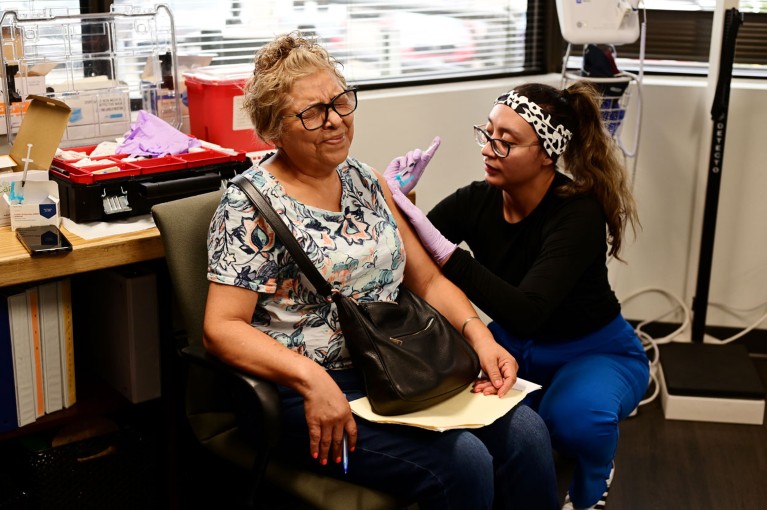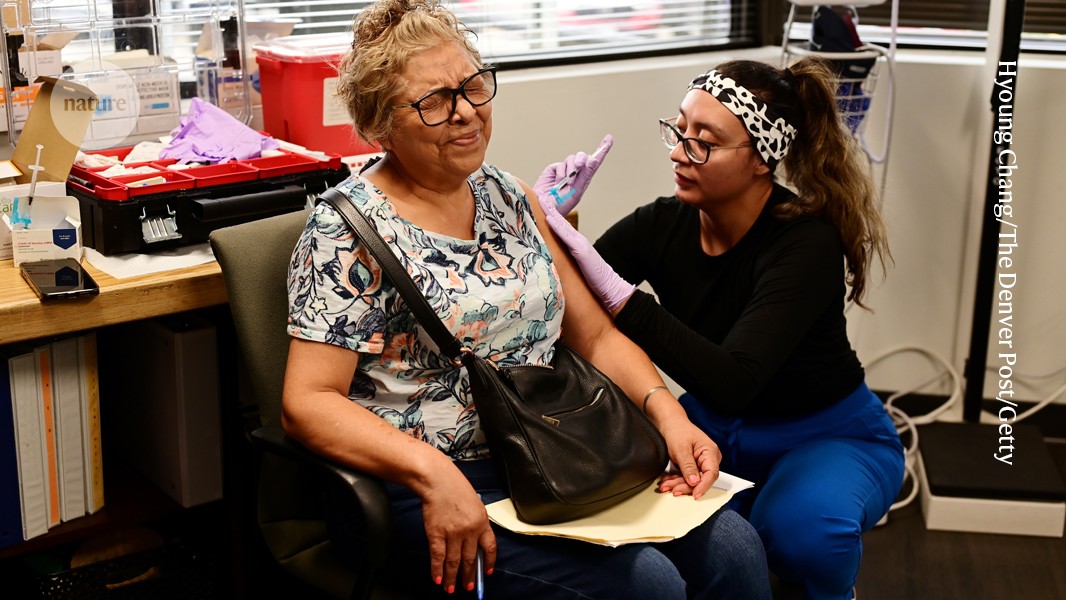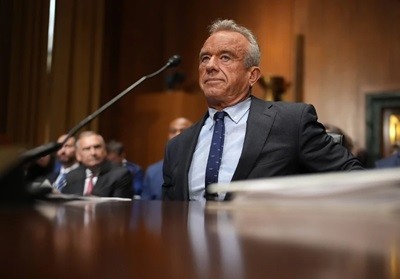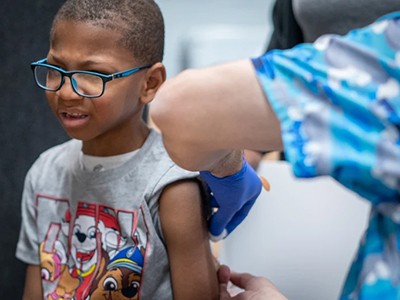
Scientists volunteering their time have contributed to medical-society guidelines on vaccines for COVID-19, influenza and respiratory syncytial virus.Credit: Hyoung Chang/The Denver Post/Getty
A group of US researchers, physicians and public-health specialists, many of them volunteers, have stepped in to assess data to guide immunization recommendations in the wake of reversals in vaccine policy by the administration of US President Donald Trump.
RFK Jr slings accusations and defends public-health upheaval at fiery hearing
The Vaccine Integrity Project (VIP) was conceived by the Center for Infectious Disease Research and Policy (CIDRAP) at the University of Minnesota in Minneapolis. It set out to review the scientific literature to advise professional societies, which issue guidelines — usually derived from official advice — that are followed by many clinicians. The initial results of the review are already being reflected in vaccine guidelines issued by medical societies and certain US states. (The review’s results have not yet been peer-reviewed, but will be submitted to a journal later this week.)
“I am taking my nights and weekends and every other spare minute I can find to devote to this project,” says Caitlin Dugdale, an infectious-disease physician at the Massachusetts General Hospital in Boston and a volunteer for the project. “I really believe in the importance of having an independent, unbiased group of people look at the data and present the data publicly.”
Why did scientists take action?
The VIP initiative’s review follows changes to the US Advisory Committee on Immunization Practices (ACIP), which issues influential vaccine recommendations for the US population. In June, US health secretary Robert F. Kennedy Jr, a long-time anti-vaccine activist, fired the entire panel; he has since hand-picked 12 new members.
Last month, the ACIP recommended putting restrictions on the use of a childhood vaccine against measles, mumps, rubella and varicella (MMRV). It also stopped short of recommending COVID-19 vaccines, instead advising that people make their own decision about whether to get vaccinated — a reversal of previous policy. The panel has yet to advise on vaccines against influenza and respiratory syncytial virus (RSV), but the committee’s initial decisions raise doubts about its credibility, those behind the VIP say.
A spokesperson for the US Department of Health and Human Services, which Kennedy heads, stood by the reconstituted panel, stating that the group reflects a “diversity of viewpoints”.
“Secretary Kennedy is restoring public trust by reconstituting ACIP with highly credentialed doctors, scientists, and public health experts committed to evidence-based medicine, gold standard science, and common sense,” the statement says.
Childhood vaccines up for review in the US: what’s at stake
The VIP’s team of volunteer scientists spent months poring over the latest data on three seasonal vaccines — for COVID-19, flu and RSV — to inform recommendations for the autumn and winter seasons.
The group’s review was extensive, encompassing all the data that have been generated on the three vaccines since the ACIP performed a similar review last year, says Michael Osterholm, an epidemiologist and the director of CIDRAP. Normally, the ACIP itself would do that review in collaboration with representatives of medical societies, but these specialists have been excluded from the panel’s working groups.
More than 20 volunteers — all people with a scientific or public-health background — participated in the VIP’s effort. The team sifted through more than 17,000 abstracts, and ultimately included data from more than 500 papers in its review. “Cleaning those data, analysing those data, trying to put them together in any kind of digestible manuscript, is really a feat,” Dugdale says.
The analysis found, for example, that pregnant people who received COVID-19, RSV or flu vaccines generally had similar or lower risks of problems such as miscarriage and congenital anomalies compared with those who did not receive the jabs. The work also revealed that immunocompromised adults over the age of 60 had an increased, although still low, risk of Guillain-Barré syndrome — an autoimmune disorder that can cause paralysis — after an RSV vaccine.
In August, the group organized a livestream session to publicly present their data relating to vaccines for pregnant people, children and immunocompromised adults. And last week, the researchers launched a web tool that allows users to explore the data.




